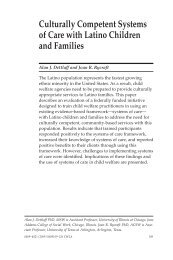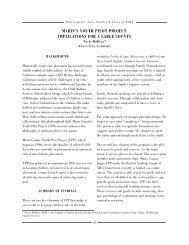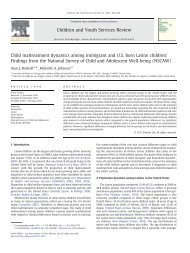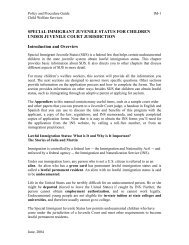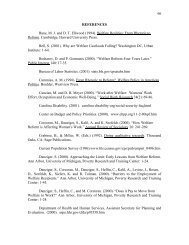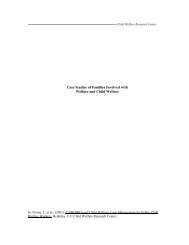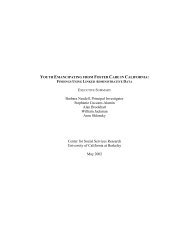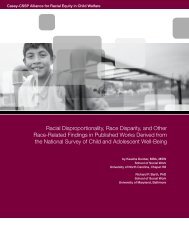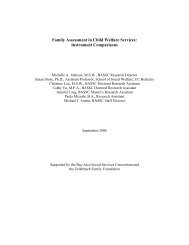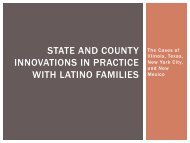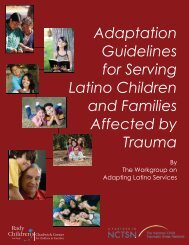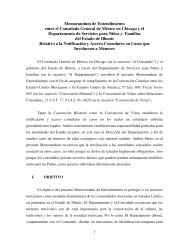Developing a Self-Assessment Toolfor Culturally - Office of Minority ...
Developing a Self-Assessment Toolfor Culturally - Office of Minority ...
Developing a Self-Assessment Toolfor Culturally - Office of Minority ...
You also want an ePaper? Increase the reach of your titles
YUMPU automatically turns print PDFs into web optimized ePapers that Google loves.
Appendix B-1Overview <strong>of</strong> Eight CLAS DomainsDomain 1: Organizational GovernanceThis domain is intended to measure the extent to which a commitment to providingservices that address the specific needs <strong>of</strong> culturally and linguistically diverse populationsis reflected through the organization’s governing structures and bodies. The existence <strong>of</strong>committees, staff positions, and advisory boards that focus specifically on racial, ethnic,cultural, and linguistic minority health care issues indicates a level <strong>of</strong> formalization andcommitment to health care quality by the organization.Similarly, decision-making bodies within an organization should reflect the cultural(including racial and ethnic) composition <strong>of</strong> the population served by the organization(Cross et al. 1989; Roberts et al. 1990). By representing the community within thegoverning bodies, the needs <strong>of</strong> the community will likely influence policy formation anddecision making, thereby rendering services that meet the particular needs <strong>of</strong> communitymembers (NLBHW 1996; Roberts et al. 1990).Domain 2: CLAS Plans and PoliciesThe types <strong>of</strong> formal policies in place that express a commitment to diversity alsoindicate a certain organizational commitment to providing quality health services to diversepopulations. Policymakers and health plan executives may set a standard <strong>of</strong> culturalcompetence, cultural sensitivity, and responsiveness by incorporating such goals into theirorganizations’ written mission statements (Cross et al. 1989). Similarly, formal policiesmay be developed and implemented which govern translation and interpretation servicesprovided by the organization. Such policies set organizational standards and protocols forservice delivery, which in turn improve the quality <strong>of</strong> care at the service level.Moreover, utilizing staff and community input on CLAS-related planning and policydevelopment is important for understanding the needs <strong>of</strong> staff and patients and effectivelyaddressing those needs, thereby improving overall health care quality. Communityadvisory boards are useful to health care organizations, including MCOs, for designing andconducting community needs assessments, planning and designing services, monitoringand evaluating quality <strong>of</strong> services, and developing organizational protocols and policies foraddressing the needs <strong>of</strong> culturally and linguistically diverse populations.COSMOS Corporation, December 2003 B-1



